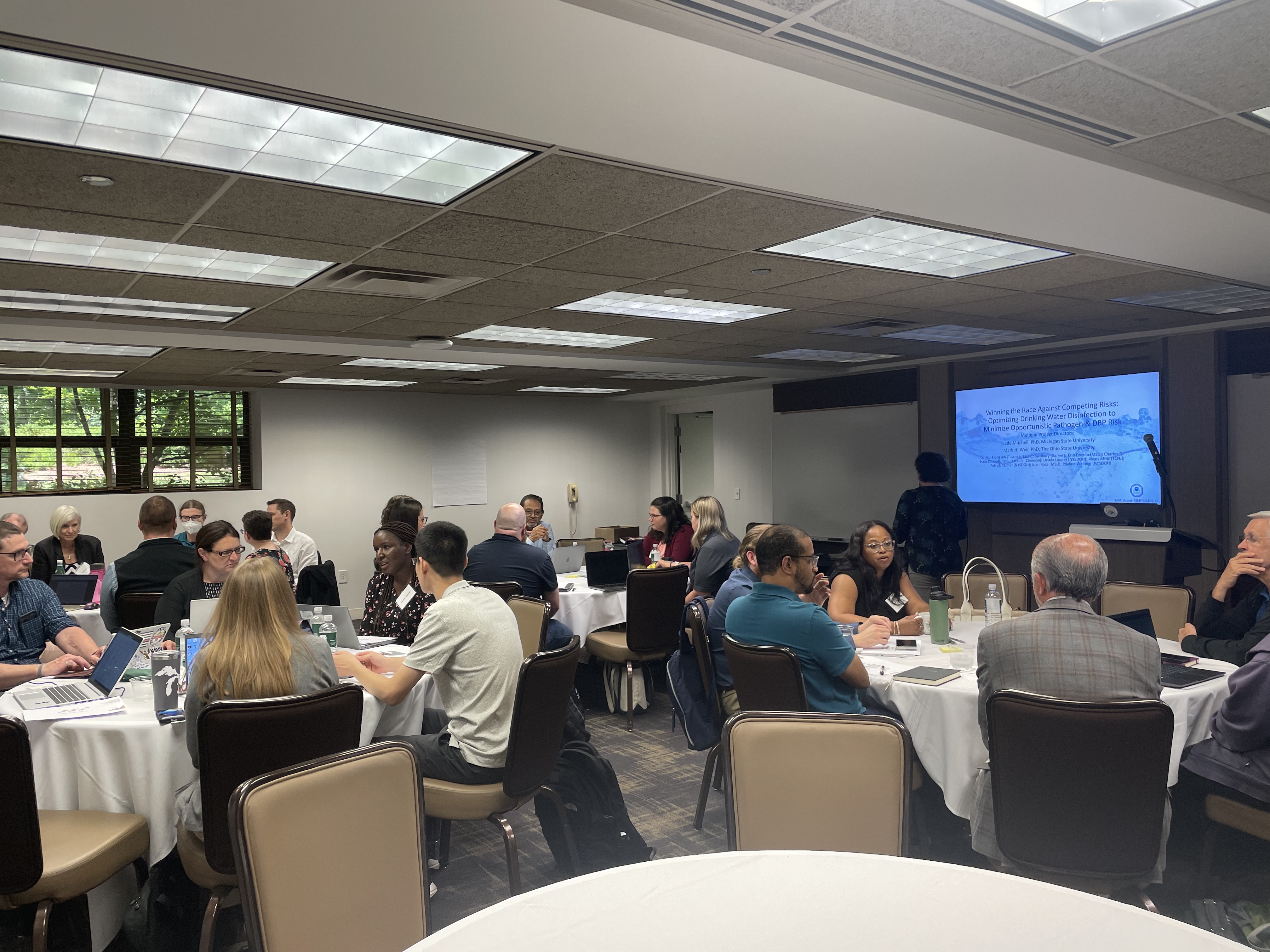Workshop is a success for Consortium for Drinking Water Risks Trade-offs
The two day event was hosted in East Lansing, Michigan at Michigan State University.

In June, the Consortium for Drinking Water Risks Trade-offs hosted a two-day workshop in East Lansing, Michigan. The team spent the first day finalizing the sampling plan with utility participants and ensuring they understood what information was needed. This project is bringing together eight organizations across the United States. The co-principle Investigators are Jade Mitchell, Ph.D., a professor in the Biosystems and Agricultural Engineering department at Michigan State University, and Mark Weir, PhD, an associate professor in the Environmental Health Sciences department at Ohio State University.
One of the Consortium for Drinking Water Risks Trade-offs' goals is to develop a strategic sampling program  based on health data and water distribution characteristics. To accomplish this goal, a workshop was held to discuss the proposed sampling programs with the utility companies. Meeting with the utility companies and having them provide feedback creates a collaborative environment, which is necessary for large projects.
based on health data and water distribution characteristics. To accomplish this goal, a workshop was held to discuss the proposed sampling programs with the utility companies. Meeting with the utility companies and having them provide feedback creates a collaborative environment, which is necessary for large projects.
The project team recognized the vital role of the individual utility companies and sat down with them to ensure everyone could ask questions and contribute to the project's progress.
The team also presented information to the companies on why samples will be collected and how data will be used. Providing information on how samples will be taken is important for clarity, and if something does not work for a utility, it’s the perfect opportunity to adjust. Data security and privacy are essential in a research project and something the team takes seriously. The team shared the plans for how data will be protected.
“The workshop was highly productive. We learned about the individual water systems of our utility partners in depth so that we can develop a strategic sampling approach. This will help us to maximize our sampling effort which is a large part of the project. We were also able to engage with our partners as colleagues and discuss challenges related to potential contaminants and new guidelines and regulatory requirements.”
The Consortium for Drinking Water Risks Trade-offs is supported as part of the EPA Grant R840604



 Print
Print Email
Email




